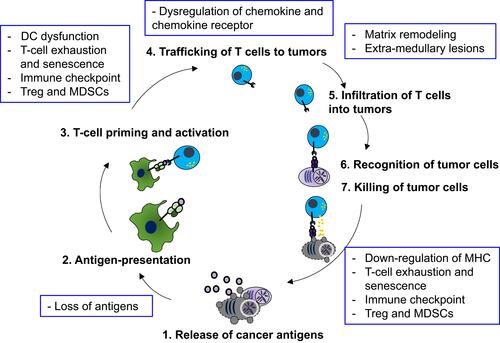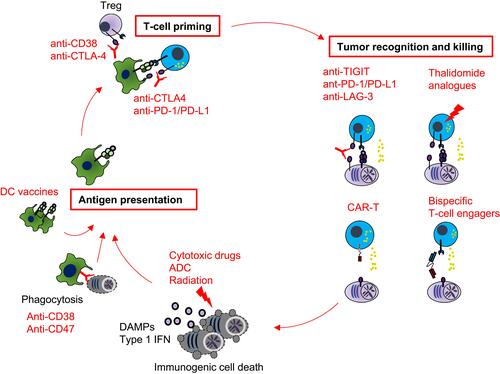Figures & data
Figure 1 The cancer-immunity cycle in multiple myeloma and its negative regulation. A schematic illustrating seven steps of the cancer-immunity cycle and their negative regulatory mechanisms in multiple myeloma (blue boxes).

Figure 2 Therapeutic approaches to stimulate the cancer-immunity cycle in multiple myeloma. A schematic illustrating how anti-myeloma therapies differentially stimulate the cancer-immunity cycle. Myeloma antigen-presentation can be augmented by immunogenic cell death inducers, enhancing phagocytosis or DC-based vaccine. Regulatory T (Treg) cells are critical regulators for T-cell priming, and thus mAbs against CTLA-4 or CD38 stimulate T-cell priming. Immunomodulatory drugs and immune checkpoint inhibitors improve recognition and killing of myeloma cells by cytotoxic lymphocytes. Chimeric antigen receptor (CAR) T-cell therapies and bispecific T-cell engager antibodies allow T cells to recognize and eliminate tumor cells in a MHC-independent fashion. Autologous stem cell transplant has pleiotropic impacts on the cancer-immunity cycle.

